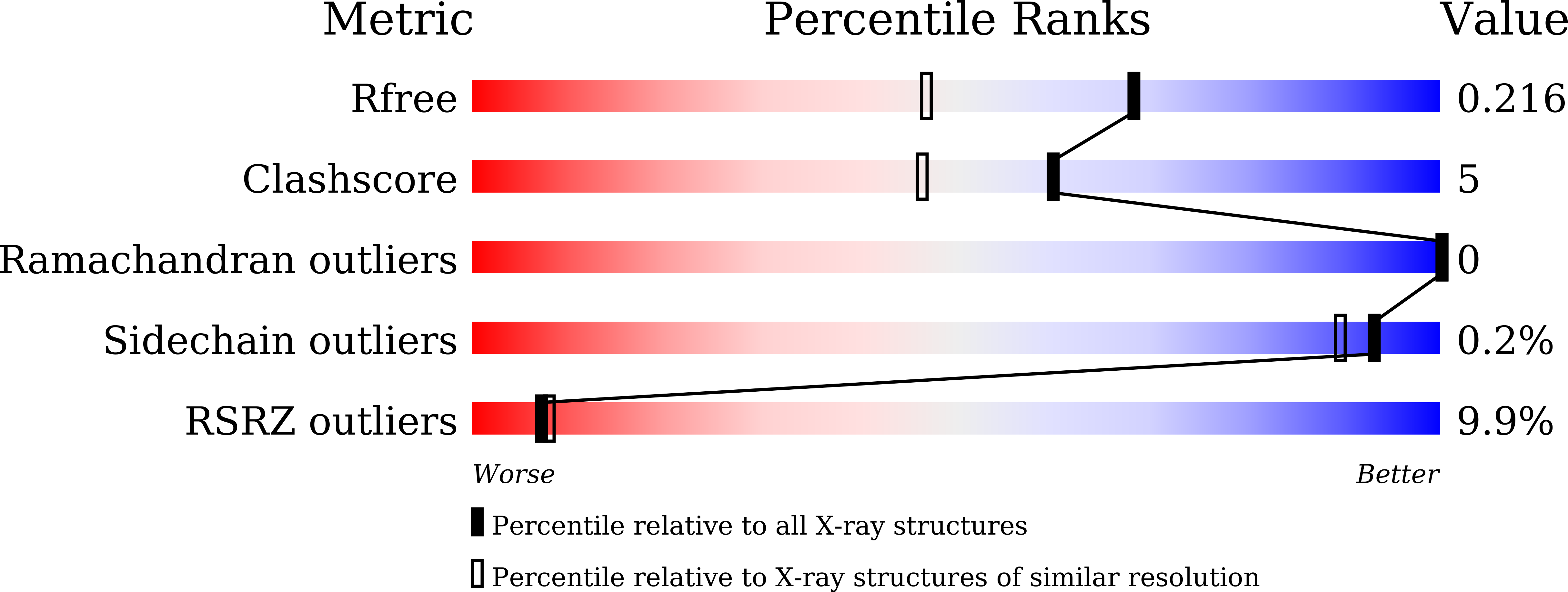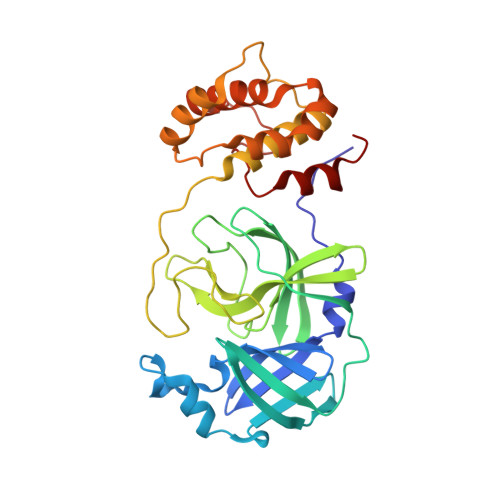Discovery of SARS-CoV-2 3CL Pro Peptidomimetic Inhibitors through the Catalytic Dyad Histidine-Specific Protein-Ligand Interactions.
Wang, Y., Xu, B., Ma, S., Wang, H., Shang, L., Zhu, C., Ye, S.(2022) Int J Mol Sci 23
- PubMed: 35216507
- DOI: https://doi.org/10.3390/ijms23042392
- Primary Citation of Related Structures:
7WO1, 7WO2, 7WO3, 7WOF, 7WOH - PubMed Abstract:
As the etiological agent for the coronavirus disease 2019, severe acute respiratory syndrome coronavirus 2 (SARS-CoV-2) challenges the ongoing efforts of vaccine development and drug design. Due to the accumulating cases of breakthrough infections, there are urgent needs for broad-spectrum antiviral medicines. Here, we designed and examined five new tetrapeptidomimetic anti-SARS-CoV-2 inhibitors targeting the 3C-Like protease (3CL Pro ), which is highly conserved among coronaviruses and essential for viral replications. We significantly improved the efficacy of a ketoamide lead compound based on high-resolution co-crystal structures, all-atom simulations, and binding energy calculations. The inhibitors successfully engaged the catalytic dyad histidine residue (H41) of 3CLPro as designed, and they exhibited nanomolar inhibitory capacity as well as mitigated the viral loads of SARS-CoV-2 in cellular assays. As a widely applicable design principle, our results revealed that the potencies of 3CL Pro -specific drug candidates were determined by the interplay between 3CL Pro H41 residue and the peptidomimetic inhibitors.
Organizational Affiliation:
Tianjin Key Laboratory of Function and Application of Biological Macromolecular Structures, School of Life Sciences, Tianjin University, Tianjin 300072, China.















